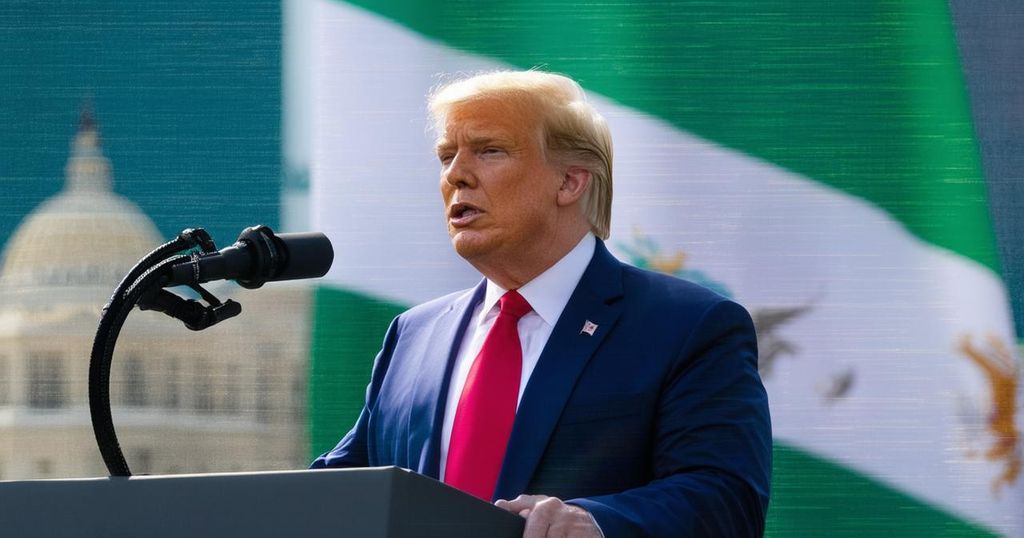Saudi Arabia and the UAE likely support Trump over Harris due to concerns that Harris’s policies could destabilize their geopolitical ambitions. Trump’s administration previously bolstered U.S. support for these nations, enhancing their military capabilities against perceived threats from Iran. Under a potential second term for Trump, the Gulf states anticipate less constraint on their regional pursuits, despite the risk of escalating rivalry between them.
The geopolitical landscape of the Middle East is currently under intense scrutiny, particularly in light of recent conflicts and the forthcoming U.S. elections. As the conflict in Gaza escalates and tensions rise, major Gulf states such as Saudi Arabia and the United Arab Emirates (UAE) find themselves at a crossroads regarding their strategic interests. Traditionally, these nations have advocated for stability, but with the anticipated presidential candidacy of Vice President Kamala Harris, their preferences may lean towards the return of former President Donald Trump. Trump’s administration previously bolstered the regional standing of both Saudi Arabia and the UAE through arms deals, military support, and his hardline policy towards Iran. His transactional approach to diplomacy resonated well with the Gulf leaders, who see his potential return as an opportunity to assert their ambitions further. Conversely, Harris’s expected diplomatic strategy might impose limitations on U.S. support and could revive tough negotiations with Iran, perceived as a direct threat by these Gulf monarchies. Saudi Crown Prince Mohammed bin Salman’s strategic aims include establishing a robust security pact with the United States, which could enhance military cooperation and nuclear engagement, akin to agreements made with other nations. Although Harris has signaled her intention to engage diplomatically with Iran, this might spark apprehension in Saudi Arabia regarding its nuclear ambitions, reflecting a complex security dilemma. Similarly, the UAE’s collaboration with Israel through the Abraham Accords under Trump opened new economic avenues, enhancing their global standing. Under a potential Trump presidency, the UAE expects lesser constraints on its regional pursuits, including military deals and collaborations, which face scrutiny under the current administration. Thus, for the Gulf states, rapprochement with Trump appears to be a strategic move to secure national interests amidst regional instability. In summary, the preference of the Gulf states for Trump showcases their calculated support for policies that favor military cooperation, economic deals, and a hardline stance on Iran, contrasting sharply with the anticipated diplomatic re-engagement under a Harris presidency. The landscape may become increasingly complex as the Gulf’s underlying rivalries surface should one state foster a more favorable relationship with a new U.S. administration.
The Gulf states of Saudi Arabia and the UAE have historically aimed for regional stability and security. Their alliances have largely depended on U.S. foreign policy, particularly regarding military support and diplomatic stances towards Iran. The Trump administration’s policies significantly enhanced their military capabilities and regional influence, raising concerns about a potential shift in direction with Democratic leadership, which may favor diplomatic resolutions over military backing. This concern reflects broader geopolitical calculations as Gulf nations prepare for the implications of the upcoming U.S. elections on their strategic interests and regional power dynamics.
In conclusion, the Gulf states’ evident leanings towards supporting Trump reveal a desire for continuity in U.S. foreign policy that aligns with their strategic ambitions. Their preference stems from apprehensions regarding Harris’s potential diplomatic overtures to Iran, military sales scrutiny, and a shift away from transactional foreign policy that has benefitted their military and economic objectives. While the Gulf states stand to gain from a Trump presidency, their competition for influence in the region could complicate the U.S.’s relations with both nations.
Original Source: foreignpolicy.com






